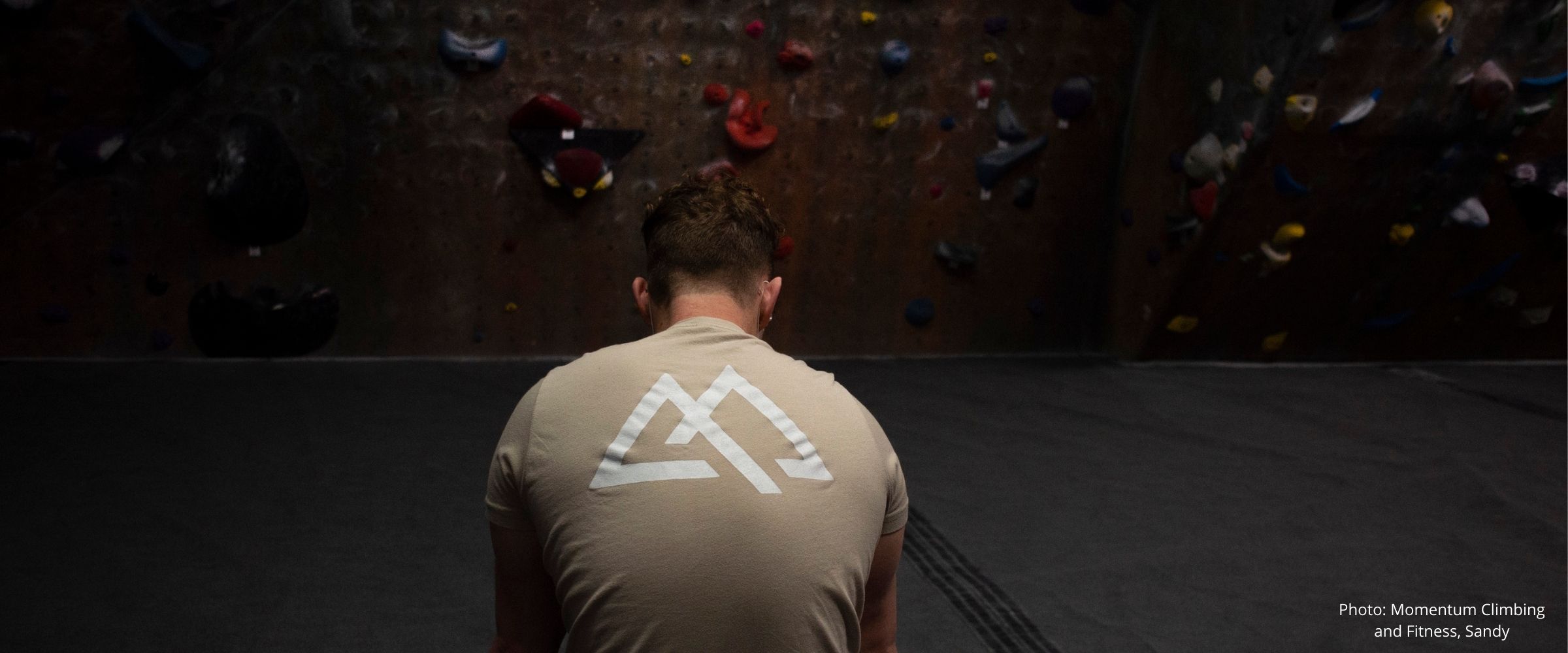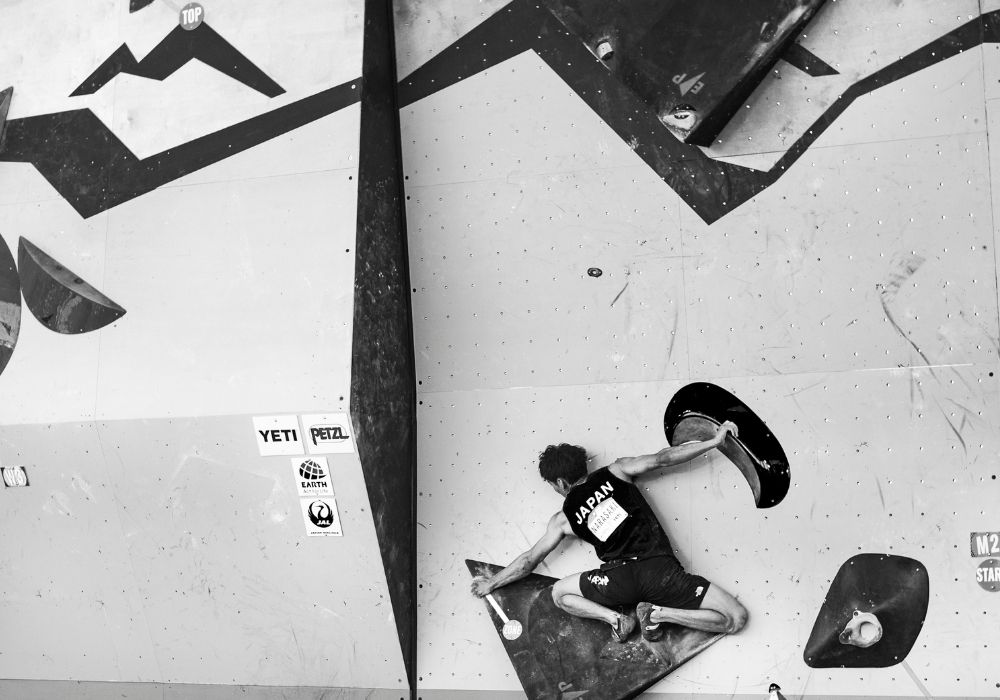(Route)Setting Good Standards: Prevent Burnout, Support Your Team

In many industries, especially during the pandemic years, there has been a big focus on employee wellness programs to decrease mental stress, increase physical activity, and improve overall morale in the workplace.
In routesetting, while there has definitely been improvement in what gyms offer to keep us healthy and happy, there are varying ideas of what should be prioritized as routines versus what is considered just a one-time perk.
As we move into the busiest season for most routesetters (competition setting and personal season projects), here are some considerations to keep your team from burning out physically or mentally, and ideas to keep the psych high.
Injury Planning
One of the most frequent issues I see in routesetting is a setter showing up when they are injured or feeling unwell. For those of us who do not have any PTO, it can be incredibly difficult to choose between resting (which results in an unpaid day) or showing up to give 60 percent and maintain our usual paycheck. There are a few things Head Setters can do to advocate for their team’s health and still make sure everyone has an opportunity to get paid.
- Most importantly: PAY ATTENTION! I’ve worked with setters who have gone to great lengths to hide an injury or illness. If someone seems off or isn’t forerunning the way they usually do, don’t be afraid to ask what’s up.
- Create a policy that protects your team if they are physically unable to set or climb. For my team, if a setter notifies me that they have tweaked something and need rest, I have a go-to running list of non-setting items that need to be done. They have choices:
- Complete items from the list while we set.
- Stay home and make up the lost hours on a different day.
- Take an unpaid day. This policy recognizes that we all come from different financial situations/obligations and puts the power in the setter’s hands to make the decision that best fits their needs.
From my experience, a setter knowing they can sit out a day and still have the option to make up the time puts much less pressure on them to come in when they can’t give 100 percent.
Forced Rest Periods
While we regularly discuss how physically taxing routesetting can be (especially after a competition) there is less discussion on mental burnout. Routesetting takes a tremendous amount of creative energy and critical thinking power that can leave a setter (especially if they are introverted) very socially exhausted after a competition week.
Many of us need time to decompress and reflect on the results to understand what worked well, what could’ve worked better, and how we want to implement what we’ve learned moving forward. From my personal experience, if I skip this decompression period and go immediately back into commercial setting, I miss out on making connections that I would’ve been able to make if I was resting.
 |
|
Hayley Moran recommends routesetters take time off climbing after competitions to prevent mental and physical burnout. A competitor tries a bouldering problem at the IFSC World Cup in May 2021 in Salt Lake City, Utah. |
Routesetters also need time after competition setting to let their skin grow back and recover physically from multiple days of climbing at their limit. Following a comp week for my team, I check in with each setter to see how many days they would like to rest and what “fun” thing they are planning to do to decompress. For some, it's doing absolutely nothing while others take advantage of the time off to be able to climb outside. For the latter, I just encourage at least one of those days as an actual no-climbing rest day. But the overall goal is to normalize rest and encourage your team to take the time to rest and reflect.
Aside from the competition setting, I will also periodically call a forced rest period if multiple setters are injured, the overall psych is low, or if we are nearing a holiday where family will be in town. While this sometimes means we get off schedule, prioritizing my team’s health and wellness creates an environment where we are humans first, and routesetters second.
Enforcing Healthy Routines
There are two types of setters: the setter who sleeps a reasonable amount, packs at least one vegetable for lunch, and stretches for at least 15 minutes before getting on the wall. The second setter (which I see most in competition setting) rolls in on 3 hours of sleep, eats a honeybun, and is somehow ready to go.
As the leader of my team, while I obviously have little control over what my team wants to do with their own bodies, I have recently focused on enforcing healthy routines that prevent injuries and prioritize physical health. First, after noticing some setters’ poor diet, I created an account with PhysiVantage and now use part of my monthly setting budget to make protein/collagen available to my team on setting days. Each morning after setting, our routine is to eat lunch together, drink collagen, and do a full session of stretching before forerunning. Having a warm-up routine as an expectation rather than a choice helps encourage those who feel a sense of urgency to slow down while also preventing injuries from climbing cold.
Other routines or benefits that some gyms offer are free or discounted physical therapy, monthly massages, and acupuncture. If you are interested in this for your team, I encourage you to reach out to those services in your community to develop a partnership or trade of services (ex: free gym membership).
Healthy Setters, Healthy Gym
When my team is not operating at 100 percent, the quality of our sets suffer. And when our sets suffer, the experience of our members suffer. As routesetters, we are artists, we are construction workers, and we are athletes. Each day we try to balance creating sets that challenge our members while also training to send our own projects.
For most of us, it can be very easy to sacrifice our bodies, our time, and ultimately our health when we are rushed to meet quotas or when we set too many events in a row. And no team has it completely figured out. But when I look at the gym from a holistic view, the experience of the climber on the wall is directly related to how well our team is functioning. And while I can’t force everyone to sleep eight hours, eat broccoli, and do nightly yoga, there are many routines a Head Setter can enforce to promote setter wellness and prevent burnout.
Before the season ramps up, I encourage you to check in with your team to evaluate what changes would be the most valuable for them.
Read more from Hayley Moran's (Route)Setting Good Standards series by visiting our archive.
About the Author
 Hayley Moran is the Head Routesetter at The Crag in Nashville, Tennessee. She has a Master’s Degree in Child and Family Studies and previously worked in the field of public health with a focus on health equity. She uses those experiences to help guide her work in the climbing industry by creating events and discussions that promote diversity, equity, and inclusion through the sport of rock climbing. When she is not on the wall, you can find Hayley baking in the kitchen, designing silly sweatshirts, or hanging out with her cat, Goblin.
Hayley Moran is the Head Routesetter at The Crag in Nashville, Tennessee. She has a Master’s Degree in Child and Family Studies and previously worked in the field of public health with a focus on health equity. She uses those experiences to help guide her work in the climbing industry by creating events and discussions that promote diversity, equity, and inclusion through the sport of rock climbing. When she is not on the wall, you can find Hayley baking in the kitchen, designing silly sweatshirts, or hanging out with her cat, Goblin.
